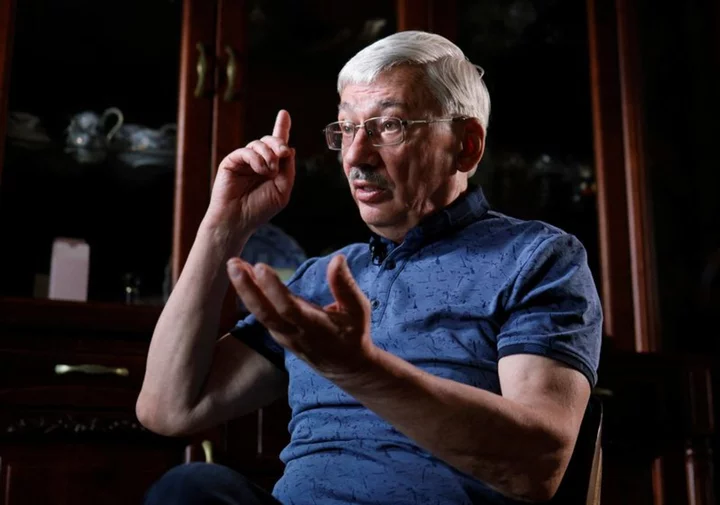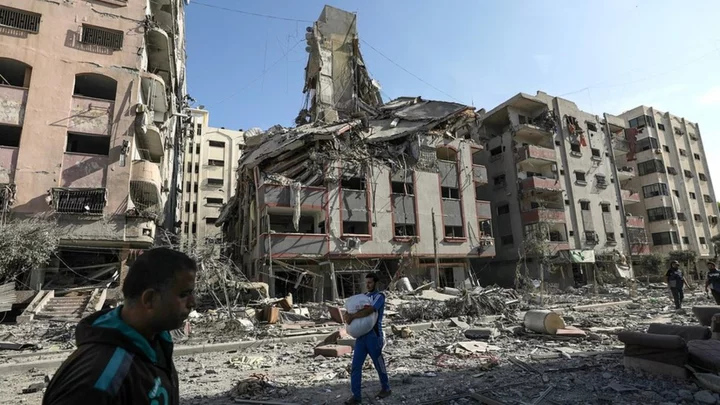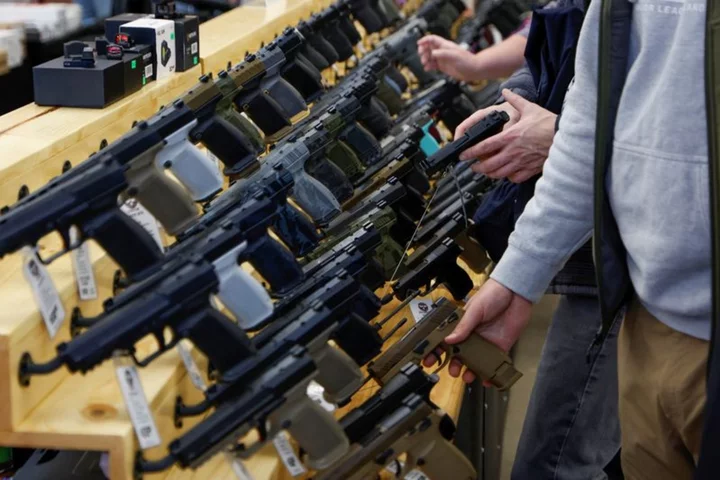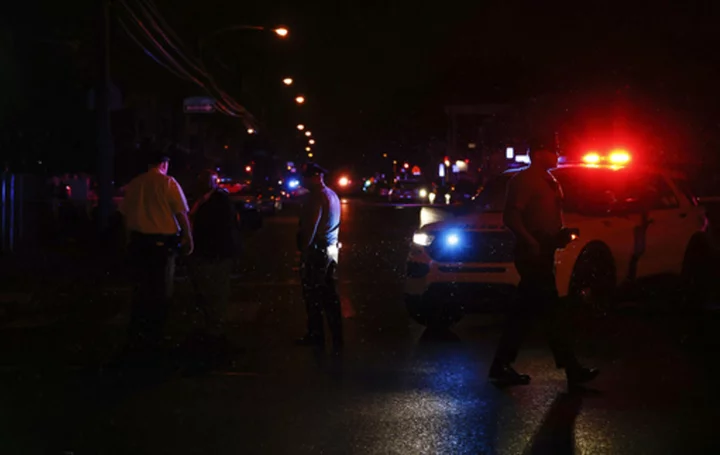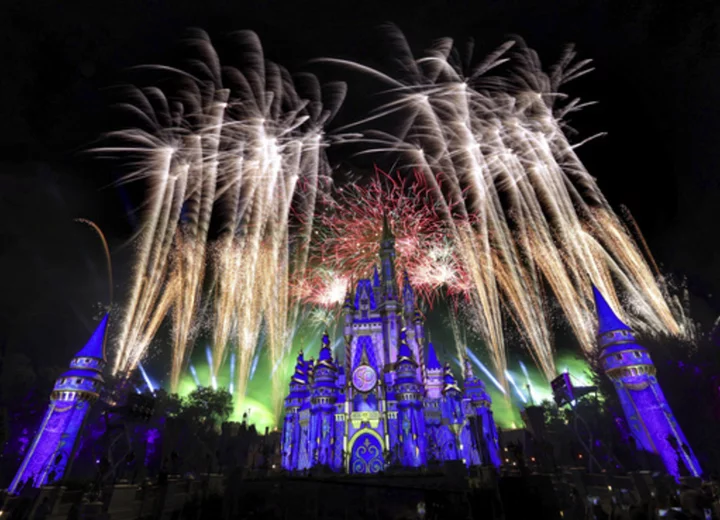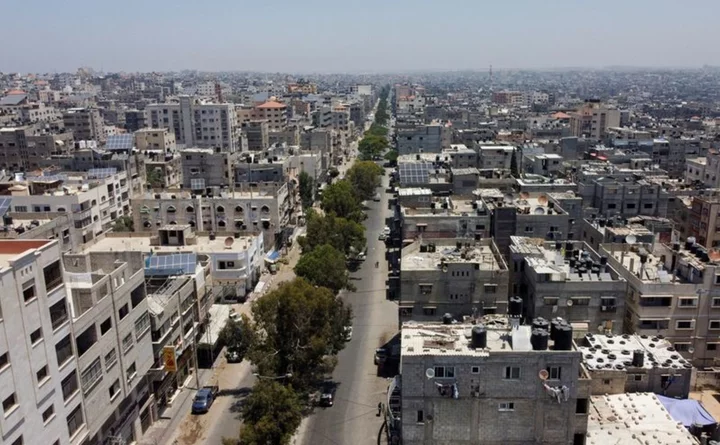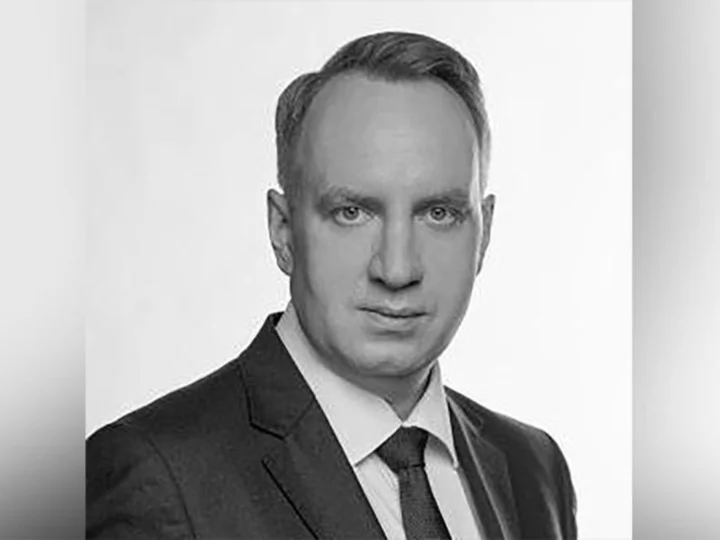(This July 12 story has been refiled to remove an additional word in paragraph 1)
By Guy Faulconbridge and Filipp Lebedev
MOSCOW Russia is decaying in a potent brew of absurdity and repression that is comparable to the Leonid Brezhnev-era of the Soviet Union, Oleg Orlov, one of Russia's most respected human rights campaigners, told Reuters.
Orlov, 70, is on trial in Russia for articles he published last year which cast Russia as a "fascist" state seeking revenge for the perceived humiliations of the 1991 collapse of the Soviet Union. He faces up to three years in prison.
One of the leaders of the Memorial rights group, which won a share of the Nobel Peace Prize in 2022 a year after being banned and dissolved in Russia, Orlov stood by his articles and cast Russia as a country gripped by the demons of history.
"Russia is going backwards," Orlov told Reuters in his Moscow flat over a glass of the traditional fermented kvas. "We left Communist totalitarianism but now have returned to a different kind of totalitarianism. I call it fascism."
"What is happening in Russia right now is absurd," he said when asked about the failed June 24 mutiny by Wagner mercenaries and the apparent absence of punishment given to the mutineers while he was prosecuted for publishing an article.
Russia's future, he said, would be decided on the battlefield in Ukraine, though he expressed regrets that Russia had missed a historic chance to occupy its place among the powers of the 21st Century.
"If this regime persists for a long time, then Russia will face a long, slow decay, lagging behind the whole world," Orlov said. "Russia has already been thrown somewhere out of the 21st Century, not even into the 20th but into the 19th Century."
Orlov, a biologist who as a Soviet dissident sought to shed light on the 1979-1989 war in Afghanistan and the rise of Poland's Solidarity movement, said he did not believe in revolution but that if Putin's successors were from his entourage there would never be true reform.
"Mostly likely what awaits Russia is a slow rot," he said, adding that Russia had missed a major opportunity to reform as the Cold War ended.
'MAN OF WAR'
He said that the early 1990s were a period of intense struggle and hardship for the Russian people, but he remembered the years as "a time of change and hope and opportunity".
The hopes of what he called the revolution of 1991 began to unravel, he said, during the First Chechen War (1994-1996) and then after Vladimir Putin's rise to the top job in 1999 amid the Second Chechen War (1999-2009).
"For Putin, war is his political technology," Orlov said. "Putin is a man of war."
Current Russian levels of repression, he said, could be compared to the Brezhnev era of the Soviet Union after the arrest of writers Andrei Sinyavsky and Yuli Daniel in 1965.
"This is the Brezhnev period," Orlov said. "The state intervenes in everything: not only in politics, not only in public activity, not only is the economy entirely subordinate to the state, but also culture and even private life."
Putin has repeatedly cast himself as a Russian leader who brought an end to the tumult of the 1990s and started standing up to an arrogant West which he says dismissed Russian interests and has repeatedly plotted to split up Russia.
Supporters of Putin dismiss campaigners such as Orlov as unpatriotic Soviet-era dissidents who are in the pocket of the West and who fail to grasp the trauma of the Soviet collapse which was mired by corruption, poverty and decay.
When asked about such a critique, Orlov said: "If they think that I and my like-minded people do not represent anyone, then why is such the huge machine of the state aimed at our suppression?"
Asked whether his criticism was unpatriotic, Orlov, citing Aleksandr Solzhenitsyn's "Gulag Archipelago", pointed out that military defeats have played a significant role in driving reform and development Russian history.
"I know that I will not be acquitted," Orlov said of his trial. "But what option do I have: Should I ask for forgiveness, weep and promise never to do it again? I will not do that."
He showed Reuters the pro-war graffiti that was sprawled on the front door of his flat, including a giant "Z" - a symbol of the war.
So what will a 70-year-old do if he is sent to a Russian prison?
"I will sit and try to survive in very difficult conditions," Orlov said. Asked what he might read, he said that he would read some William Faulkner and certainly Fyodor Dostoevsky's "The Brothers Karamazov".
Orlov's wife, Tatiana, told Reuters that she was extremely worried about the prospect of him going to prison.
"But I must carry on so I can support him."
(Reporting by Guy Faulconbridge in Moscow, Filipp Lebedev in Tbilisi; Editing by Nick Macfie)

